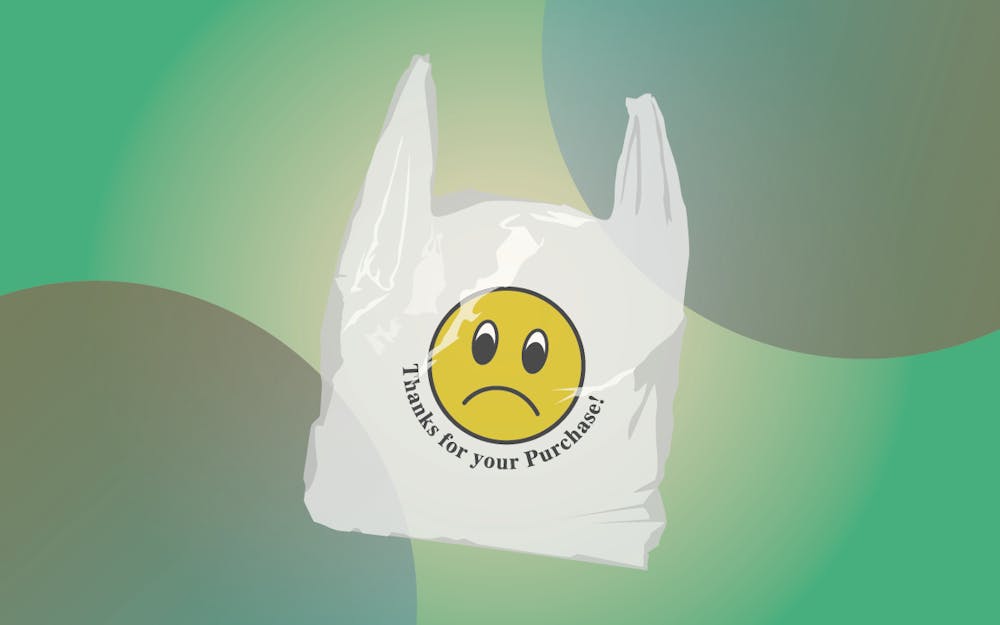There’s a scene in Sally Rooney’s 2017 novel “Conversations with Friends” where two of our main characters, Nick and Frances, have a discussion about mental health. Nick informs Frances he’s seeing a psychiatrist, and she responds, “depression is a humane response to the condition of late capitalism.”
The response is slightly tongue-in-cheek — Frances is only repeating something her best friend and roommate, Bobbi, would’ve said — but hidden beneath the sardonicism is a glimmer of truth. It only makes sense that, in a system that not only breeds but encourages radical individualism, we’d be depressed.
So, let’s run through a few of the things capitalism is good at. It’s good at creating and nurturing a feeling of constant competition: the social Darwinism inherent in the system means those who survive it and make it to the top are “strong” and “intelligent,” while those who barely scrape by at the bottom are “weak” and “stupid.”
In this way, it’s entirely your fault for not being able to keep up with ever-increasing rent costs, despite the fact that wages in the United States have stagnated since the early 1970s.
It’s also good at convincing you the reason things are as they are is because resources are scarce. We can’t raise the minimum wage, right-wing pundits tell you, because then the cost of goods would increase and the unemployment rate would skyrocket. And if we don’t decrease Social Security benefits, they say in the same breath, then the program’s going to go bankrupt.
Never mind the fact that we could choose to tax the wealthy and cut corporate subsidies to fund social programs. Never mind the fact that it’s been proven that higher wages don’t have a net negative impact on the prices of goods or employment. And, never mind the fact that, despite wages having stagnated, productivity has greatly increased — you can work as hard as you can, but the fact is most of the resources are going to be situated in the hands of a select few.
Another thing capitalism is good at is fostering a sense of loneliness and isolation. Despite our globalized world being more interconnected than ever, and despite the internet strengthening communication in ways humans never would have imagined, we’re more remote than ever.
[Related: OPINION: Self-care should have nothing to do with consumption]
The inauthentic image of ourselves we portray online — i.e., our “personal brand” — has created this constant need to be the “best version of ourselves we can be.” We want everyone to know we’re productive, beautiful, carefree and healthy, in direct contrast to the realities of the capitalist market.
We base our worth on how productive we are. We turn toward unrealistic beauty standards, exacerbated by a market obsessed with promoting the latest beauty trends, as a marker for how we should look. It’s no wonder capitalism and depression are intrinsically linked and young people are the ones most affected.
Further, social media purports that the best way to escape these feelings are to practice self-care, which itself is a temporary, individualistic approach to the wider systemic issue. It’s not an accident that the idea of taking care of yourself to alleviate feelings of mental illness has become trendy and commodified — capitalists want you to believe it’s a problem you have to fix in yourself, and not one that can only be fixed through the collective dismantling of our current mode of production.
We’re encouraged to believe that our fellow humans are inherently selfish, and that we shouldn’t put too much trust into other people. It’s discouraged to ask others for help, because doing so is humiliating and a sign of weakness. If you’re feeling overwhelmed by the number of responsibilities you carry, there’s not much you can do — just pick yourself up and stop complaining, because welcome to being an adult.
We take it for granted that life is meant to be miserable. You complain about your job to the older generations and you hear “well, nobody’s really supposed to like their job” in response. Tales abound of how nobody helped them out growing up and it’s just something one must get used to. Unless your dad happens to be the CEO of a Fortune 500 company, your life is pretty much going to consist of working and making rent until you can maybe retire.
That’s an incredibly pessimistic worldview, but it’s a very real condition of capitalism. It’s been proven that depression isn’t the result of a simple chemical imbalance and that some of us are just naturally more prone to experiencing it. On the other hand, chronic stress is associated with an increase in depressive feelings — and the top causes of stress include the cost of living, healthcare costs, saving for retirement and unemployment.
[Related: OPINION: Is socialism incompatible with human nature?]
Depression and anxiety are very normal responses to a very unhealthy system. I can already see the arguments — replacing capitalism with a collectivist, socialist system surely can’t completely eliminate the mental health problem. And, maybe that’s true — maybe there’s more to it than that. But the alternative is sitting on our hands and accepting the world as it is.
Sure, capitalism may not be the be-all-end-all for why people are depressed. But it’s certainly not helping, is it?
Joey Sills (he/him) is a junior studying journalism and political science.






